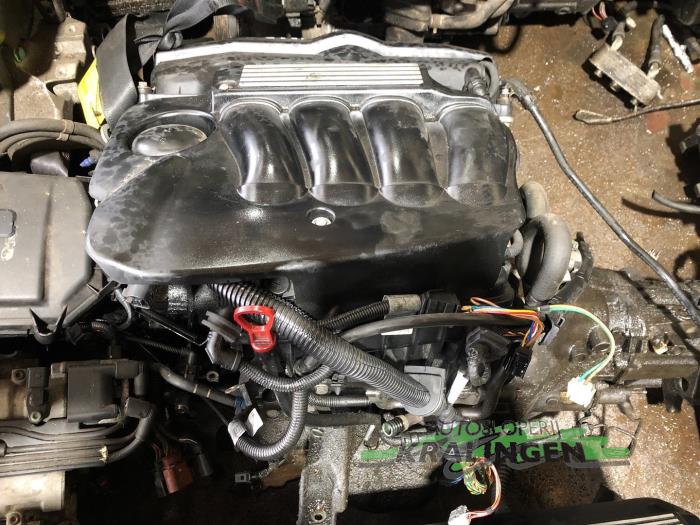Vital Considerations for Picking the most effective Engine for Your Requirements
In the realm of choosing the perfect engine to satisfy your needs, numerous essential variables demand precise consideration to make sure optimum efficiency and efficiency. From the nuanced balance between power and efficiency to the often-overlooked facets of upkeep and solution needs, each element plays a pivotal role in determining the most appropriate engine for your details needs.
Power and Performance
When evaluating engines for optimum performance, it is critical to prioritize both power outcome and performance. Efficiency refers to how well the engine converts gas into functional power. By carefully assessing both power and efficiency, you can choose an engine that provides optimum performance and meets your demands successfully.
Gas Efficiency and Economy
Fuel efficiency refers to the engine's ability to transform gas right into energy with minimal waste, directly impacting operating costs and ecological sustainability. Engines with greater gas effectiveness not only reduce gas expenses but also lower carbon discharges, contributing to a greener operation.

Compatibility and Application
Considering the gas effectiveness and economic climate of an engine, the following vital aspect to address is its compatibility and application within certain operational contexts. Compatibility describes how well the engine incorporates with the general system or tools it powers. It entails elements such as physical measurements, mounting choices, electrical user interfaces, and control systems. Making certain compatibility is necessary to prevent problems such as overheating, resonances, or power imbalances (bmw 318ti).
Additionally, the application of the engine is similarly vital. Various engines are developed for certain objectives, whether it be commercial machinery, aquatic vessels, autos, or power generators. Understanding the designated application permits the option of an engine that can supply the required power output, torque, and operational features. For instance, a high-revving engine created for efficiency vehicles would not be appropriate for durable building devices that calls for high torque at low speeds.
Upkeep and Solution Requirements
Upkeep and solution requirements play a vital function in guaranteeing the longevity and optimum performance of an engine. Routine upkeep is vital to avoid breakdowns, prolong the life-span of the engine, and keep its efficiency. When choosing an that site engine, it is very important to think about the supplier's advised upkeep schedule and the availability of solution centers or qualified service technicians.
Variables such as the frequency of oil changes, filter replacements, and general assessments can dramatically influence the engine's efficiency. Some engines might call for more regular servicing based on their style and usage, while others may have longer intervals in between maintenance checks. It is vital to abide by these service requirements to stay clear of pricey fixings and unanticipated downtime.

Expense and Spending Plan Factors To Consider
Budget plan constraints usually play a substantial role in the decision-making procedure when choosing an engine for a particular application. When taking into consideration the expense and spending plan implications of picking an engine, it is important to assess not just the initial purchase rate however additionally the long-lasting costs linked with maintenance, gas consumption, and prospective upgrades or repairs. It is vital to strike an equilibrium between the ahead of time cost of the engine and its general lifecycle costs to guarantee that the picked engine remains economically lasting throughout its operational life expectancy.
Elements such as gas sturdiness, efficiency, and reliability can directly impact the overall expense of possession of an engine. While an extra pricey engine might have greater upfront expenses, it can possibly cause reduced upkeep and gas expenditures over time, thus providing much better worth in the lengthy run. Furthermore, taking into consideration the schedule and price of extra components, in addition to the convenience of upkeep and solution, can assist stop unforeseen monetary stress in the future. By very carefully examining these expense and budget plan factors to consider, you can make an educated decision that aligns with your financial restraints and functional demands.
Verdict

Gas effectiveness refers to the engine's capability to transform fuel into power with marginal waste, straight affecting operating prices and environmental sustainability.Variables influencing fuel effectiveness include engine design, burning effectiveness, and general efficiency optimization. In addition, choosing the appropriate fuel type and grade as recommended by the engine manufacturer can even more boost performance and lengthen engine lifespan.
Engines with excellent use features and conveniently available parts can reduce upkeep expenses and minimize the time the engine is out of procedure - bmw 318ti. It is crucial to strike an equilibrium in between the upfront cost of the engine and its general lifecycle prices to ensure that the selected engine continues to be economically sustainable throughout its operational life expectancy